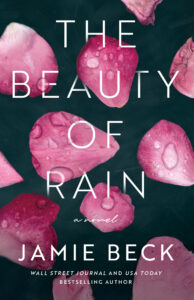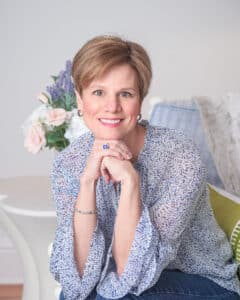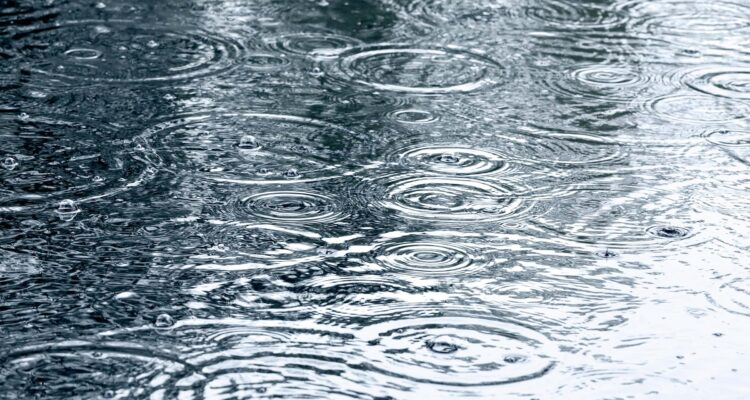We’re thrilled to share the inspiration behind Jamie Beck’s The Beauty of Rain in her own words.
People who’ve had a brush with their mortality tend to reassess their priorities, and I am no exception.
My downward health spiral began when my doctor discovered thyroid tumors that required a complete thyroidectomy. Months later, problematic pap smears led to a hysterectomy. While the idea of that surgery made me emotional, I hadn’t foreseen how much worse things could get. After all, human error is always a possibility in surgery. The accidental nick to my bowel during my hysterectomy went undetected for three days, at which point I became septic. My panicked husband raced me to the emergency room, where grim-faced surgeons immediately gave me an emergency bowel resection.
I survived but was forever changed by nine painful days of reckoning while recovering in the hospital with a tube down my nose, no food, and multiple IVs.
 In that hospital room, I remained shaken by how close I came to dying. It lurked like a monster under the bed. I broke into tears for no reason. I became overwhelmed with thoughts about the family milestones I missed and the unsaid or unresolved things with the people I most loved.
In that hospital room, I remained shaken by how close I came to dying. It lurked like a monster under the bed. I broke into tears for no reason. I became overwhelmed with thoughts about the family milestones I missed and the unsaid or unresolved things with the people I most loved.
Everything suddenly felt more urgent, making me aware of how much time I’d wasted worrying about things beyond my control. It also made me realize how I’d allowed career ambitions, regrets, and micro-managing my teenagers’ lives to clutter my thoughts and drive my behavior.
Like many who now conduct our lives seamlessly and virtually through technology, I’d also become complacent. I could work alone on my laptop. Shop from my sofa. Make new friends online. Play games virtually with others or by myself. I could watch shows and movies, read books, and listen to music all in the palm of my hand. I’d even fallen prey to the FOMO-hysteria of social media. In other words, I’d bought into the idea that happiness came from achievements, accolades, possessions, and experiences.
It’s easy to fall into those traps because we all want to experience and accumulate the best things in life for ourselves and for those we love. I still do, but what has changed for me is the definition of “the best things.”
When I was in that hospital praying for more time, I would have sold every possession to buy it. I would’ve traded my job and any accolades for just one more year. I even would’ve given up my bucket list if doing so allowed me to see my kids settle into adulthood.
In other words, none of those former everyday worries or virtual connections truly mattered most to me when everything was at stake.It is not a novel or profound discovery. Scientists have studied happiness for decades and determined that the primary indicator of happiness is the quality of relationships. What mattered most to me was knowing I’d be a good spouse and parent. Whether the people would remember me positively. Whether I left others feeling safe, loved, and heard.
I left that hospital room one and a half years ago. Since then, I’ve done deep personal work and reflection through therapy, podcasts, and honest conversations. I’ve rebalanced my priorities so that work, parenting, and entertainment are given a balanced share of my time and energy. 
My rebalancing exercise is what inspired The Beauty of Rain. I hope Amy’s and Kristin’s story will encourage readers to take a personal inventory of their meaningful relationships and overall satisfaction. I want everyone to be mindful of life’s brevity and never assume that there will be another day to heal that friendship, make a partner laugh, or invest in the people they cherish. Mostly, I hope the “live now, not when” message is what sticks at the close of the story. Your happiness depends on it!


